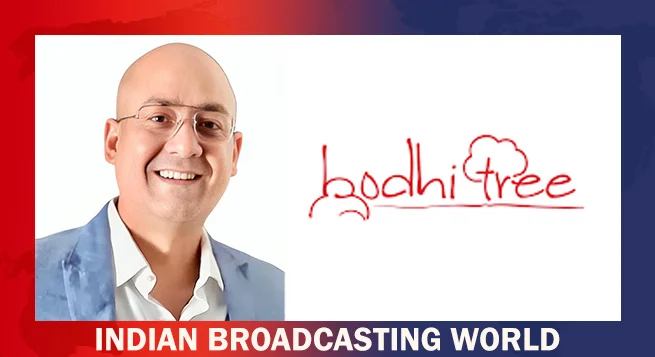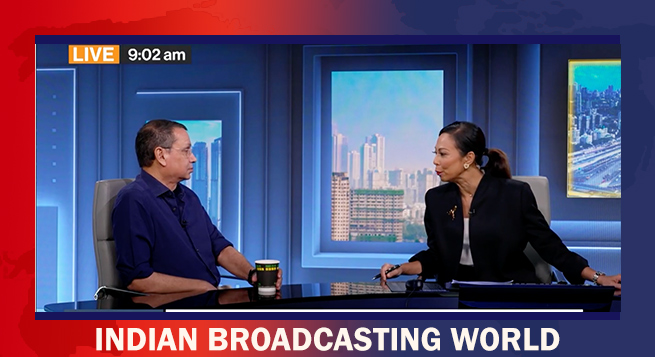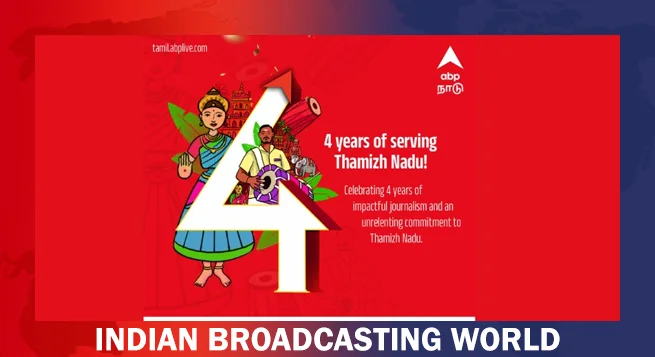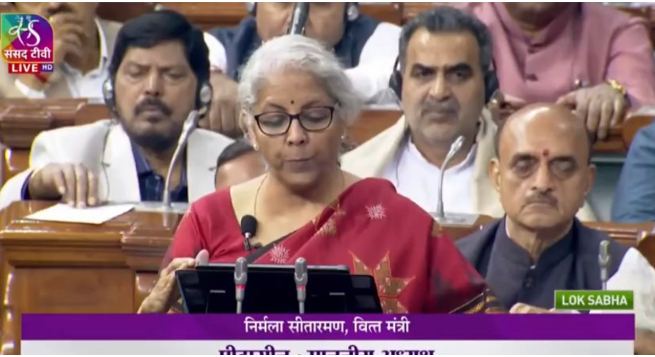India’s approximately $ 2 billion industry can cheer for the fact that the government’s budgetary announcements yesterday on the country’s technology agenda and initiatives to boost digital infrastructure can have a positive cascading impact on the sector— at least indirectly.
Mobile phones and TV sets manufactured in India would become cheaper with Finance Minister Nirmala Sitharaman announcing cuts in basic customs duty (BCD) on import of their components while presenting the Budget for 2023-24.
In order to deepen domestic value addition in the manufacture of mobile phones, the government has proposed exempting BCD on the camera lens for the camera module, and input/sub-parts for lens of the camera module of mobile phone is being reduced from 2.5 per cent, a PTI report stated. It has also proposed to reduce BCD on parts for the manufacture of open cells of TV panels from 5 per cent to 2.5 per cent.
“Similarly, to promote value addition in the manufacture of televisions, I propose to reduce the basic customs duty on parts of open cells of TV panels to 2.5 per cent,” said Sitharaman.
The Union Budget on February 1 outlined several initiatives to drive India’s technology agenda and boost digital infrastructure, including new centres of excellence for artificial intelligence, National Data Governance Policy, and Entity DigiLocker.
Sitharaman asserted that India’s rising global profile is because of several accomplishments such as unique world-class digital public infrastructure, entailing Aadhaar, Co-Win and UPI.
Sitharaman, in her Budget speech, spoke of tech infrastructure and digital ecosystem as well as measures in new-age areas of Artificial Intelligence and 5G.
“Our vision for the Amrit Kaal includes technology-driven and knowledge-based economy with strong public finances, and a robust financial sector,” Sitharaman said.
To unleash innovation and research by start-ups and academia, a National Data Governance Policy will be brought out, she said adding this will enable access to anonymised data.
Sitharaman said the KYC (know-your customer or customer verification programme) process will be simplified by adopting a risk-based ‘instead of one size fits all’ approach. The financial sector regulators will also be encouraged to have a KYC system fully amenable to meet the needs of Digital India, according to the PTI report from New Delhi.
“Fintech services in India have been facilitated by our digital public infrastructure including Aadhaar, PM Jan Dhan Yojana, Video KYC, India Stack and UPI. To enable more fintech innovative services, the scope of documents available in DigiLocker for individuals will be expanded,” Sitharaman said.
Industry obervors said such fintech-related moves could have a positive impact on online subscriptions for OTT and similar platforms.
On 5G services, Sitharaman said 100 labs for developing applications using 5G services will be set up in engineering institutions to realise a new range of opportunities, business models, and employment potential. The labs will cover, among others, applications such as smart classrooms, precision farming, intelligent transport systems, and health care applications.
On high-tech production, the Finance Minister said that as a result of various initiatives of the Government, including the phased manufacturing programme, mobile phone production in India has increased from 5.8 crore units valued at about Rs 18,900 crore in 2014-15 to 31 crore units valued at over Rs 2,75,000 crore in the last financial year.
An M&E industry executive, who didn’t want to be named, while admitting a bit of disappointment on the budgetary proposals as nothing directly was done for the industry, however, said the silver lining is in indirect benefits.
The executive, who has worked in satellite, cable TV and entertainment sectors, pointed out that if prices of mobile phones decrease, then the sales are likely to increase that would give a boost to media consumption on mobiles leading to increased data usage, which could be good news.
Similarly, if prices of TV sets are slashed, then increased sales could result in more cable TV and DTH connections, the executive pointed out.
 Bodhitree appoints Sudip Roy CRO; launches new revenue division
Bodhitree appoints Sudip Roy CRO; launches new revenue division  SonyLIV drops ‘Black, White & Gray-Love Kills’ trailer
SonyLIV drops ‘Black, White & Gray-Love Kills’ trailer  Rahul Sinha takes charge of Zee News’ DNA
Rahul Sinha takes charge of Zee News’ DNA  JioStar vice-chair Uday Shankar on surge in streaming subs, trade tariff challenges
JioStar vice-chair Uday Shankar on surge in streaming subs, trade tariff challenges  Nand Kumar Nair joins TV9 Network as editor
Nand Kumar Nair joins TV9 Network as editor  CTV is new primetime: How IPL ‘25 redefined brand recall in living rooms
CTV is new primetime: How IPL ‘25 redefined brand recall in living rooms  Netflix drops stylish trailer of heist drama ‘Jewel Thief…’
Netflix drops stylish trailer of heist drama ‘Jewel Thief…’  Tamil digital news platform ABP Nadu crosses 9mn users; turns 4
Tamil digital news platform ABP Nadu crosses 9mn users; turns 4 









